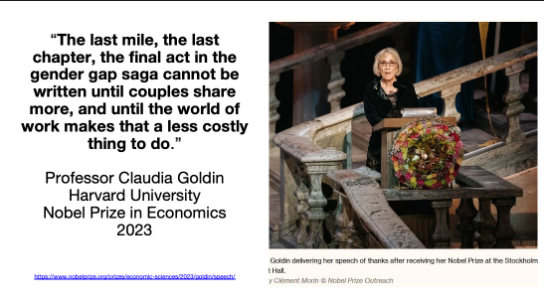I wonder how Philippe Couillard, the relatively new prime minister of my adopted home province of Quebec, feels about gender roles.
Let me elaborate.
Mr Couillard, prior to taking up his post, promised that a maximum of 60% of his ministries would be run by men. After his Liberal Party of Quebec won a majority in the elections this spring, men were given 18 of 26 ministries. That is 70%, not 60%. Women are relegated to 30% of ministerial positions.
It is not just the number of ministries that matter, but also their very nature. Health, finance, economics, work, those ministries that get the sunlight in the media, are led by men.
Not that there is anything wrong with it, as Jerry Seinfeld would point out.
As long as men and women can empathize with each other and share their plights and challenges.
Because then government policies and regulations can consider the perspectives of women and men, which makes it easier to not perpetuate structures that consistently make life harder for either of them.
Can individuals so empathize with one another? Casual empiricism and life experience tells me that, unfortunately no, this is not the case. Proportional representation in government then becomes key. If traditionally disadvantaged groups are not represented in government, they are overlooked during deliberations and decision-making. Structures that have contributed to their disadvantage will be kept alive or even resuscitated, as a recent example suggests.
Mr Couillard has taken it upon himself to threaten the sacred cow of daycare funding in Quebec. For years, Quebeckers have paid $7 dollars per child per day. Mr Couillard wants this state of affair changed to “reflect the revenue structure in Quebec“. His government will make the price of daycare vary with family income; for families with a net income between $75,000 and $100,000, the price is expected to range from $8 to $12, for families with a net income between $150,000 and $200,000 the price will be between $15 and $20.
What are the implications of such a policy for women and men in Quebec?
The dials of time may well be turned back to olden days when women were at the hearth and men at the office.
Why? Consider this.
Family incomes include those of both parents. Generally, a woman will make less money than a man, for the same work. Many women do not have the same work as men, but are active in fields that pay lower salaries even for the rare men who work there. In other words, family incomes generally are driven more by the male than the female salary.
With daycare more expensive, it becomes less attractive for both parents to work and more interesting for one of them to stay at home to take care of the offspring. That one person to stay home will often be the one who earns the lower income – which, in most cases, is the woman.
The proposed fee changes may be insufficient to immediately set off such a turn of events. But who is to say that the government will stop here and now? Come next year, Quebeckers may face another round of daycare fee increases. They will start their way down (or rather up) the slippery slope of fee hikes.
The unfortunate consequence of this is that gender roles from days past will be re-awakened, and re-inscribed into the social fabric of daily life. Children growing up in a household where the woman is at the hearth and the man at the office will perceive such gender roles as a ‘natural’ state of affairs and internalize them. Women will have a hard time negotiating their salaries up to the levels paid to men, since their boss will be able to argue that they are going to be taking ‘time off’ for child care. For the same reason, women will also have a hard time getting the kind of work they want to have: the mommy track will wait for them. Men will find it challenging to be actively involved in child rearing since it is expected of them to dedicate their time to being the breadwinner.
And so the wheels turn. Do you want them to go backwards, Mr Couillard?
It would be so easy to prevent this. If daycare fees are to be raised, make them dependent on the lowest individual income in a family, instead of the total combined income. Families whose lowest earner makes less money get more support from the government and pay lower day care fees; this prevents women, who are the lowest earners in the typical family, from being penalized.
Your thoughts?
Photo adapted from freeparking.









